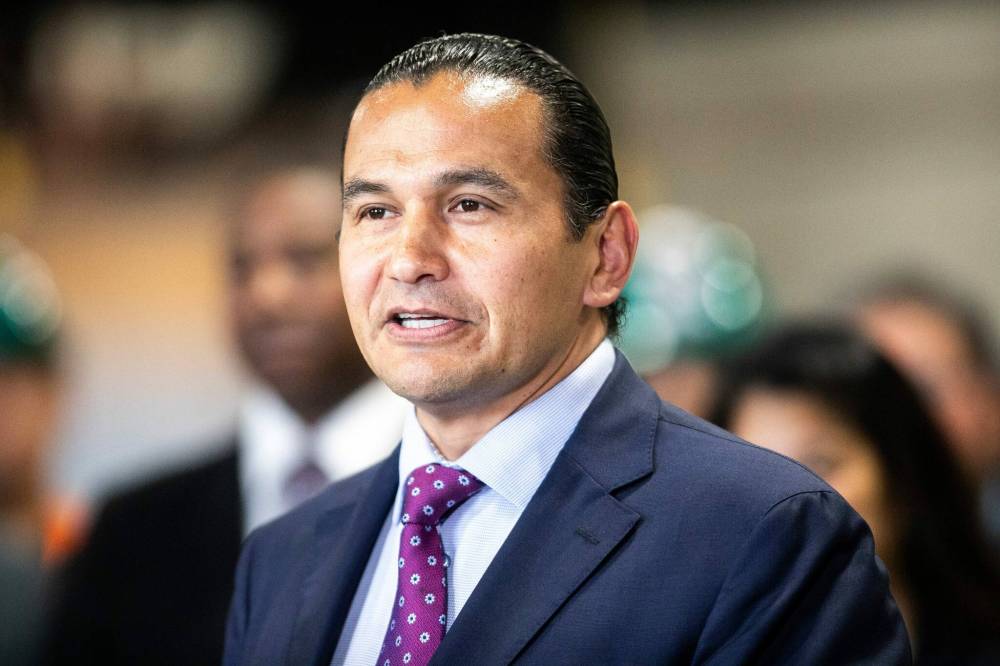Talking tough on crime won’t get the job done
Advertisement
Read this article for free:
or
Already have an account? Log in here »
We need your support!
Local journalism needs your support!
As we navigate through unprecedented times, our journalists are working harder than ever to bring you the latest local updates to keep you safe and informed.
Now, more than ever, we need your support.
Starting at $15.99 plus taxes every four weeks you can access your Brandon Sun online and full access to all content as it appears on our website.
Subscribe Nowor call circulation directly at (204) 727-0527.
Your pledge helps to ensure we provide the news that matters most to your community!
To continue reading, please subscribe:
Add Brandon Sun access to your Free Press subscription for only an additional
$1 for the first 4 weeks*
*Your next subscription payment will increase by $1.00 and you will be charged $20.00 plus GST for four weeks. After four weeks, your payment will increase to $24.00 plus GST every four weeks.
Read unlimited articles for free today:
or
Already have an account? Log in here »
The breakdown of mediation between the Manitoba Association of Crown Attorneys and the provincial government should alarm anyone concerned about public safety.
This is not just a labour dispute, it’s a crisis that strikes at the core of Manitoba’s ability to prosecute crimes fairly, efficiently and effectively.
For months, prosecutors have been raising the alarm about crushing workloads, burnout and chronic understaffing in the Crowns’ office. Some have left for other jurisdictions that pay more money or for less stressful work in the private sector. Those who remain are often stretched to the breaking point, juggling dozens of files at once, with little time to properly prepare cases or argue bail hearings.

If Premier Wab Kinew’s government wants credibility on public safety, it must start by fixing what it has under its own control. (Mikaela MacKenzie/Winnipeg Free Press files)
Now, mediation has failed, and that means there’s no immediate solution in sight.
Premier Wab Kinew’s government says it’s committed to strengthening public safety. But its actions are not matching its rhetoric.
The Kinew government has joined other provinces in calling for tougher federal bail laws, arguing Ottawa must do more to keep dangerous offenders off the streets. But that rings hollow when Manitoba’s own justice system is struggling to keep up with even the most basic responsibilities of prosecution.
Tough talk about crime means little when the people tasked with enforcing the law are overwhelmed and under-resourced.
MACA has provided detailed evidence showing that prosecutors are routinely handed bail cases with little notice and inadequate time to prepare. That means key facts are sometimes missed, arguments are rushed and the court is left to make crucial public safety decisions without the full picture.
It’s not hard to see how that can lead to poor outcomes — offenders released who shouldn’t be, or delays that allow cases to fall apart altogether.
The problem is not new, but it has worsened in recent years. Manitoba’s prosecution service has long operated under strain, with vacancies, increasing caseloads and limited support.
The result is a system on the brink. Prosecutors are burning out, trials are delayed, victims are losing faith and the public is right to question whether justice is truly being served.
The government’s failure to reach a deal with MACA only deepens that uncertainty. Mediation was supposed to be the step toward stability — a chance to rebuild trust, improve working conditions and ensure prosecutors have the resources they need.
Its collapse is a sign of deeper dysfunction between front-line justice workers and the political leadership that oversees them.
If Kinew’s government wants credibility on public safety, it must start by fixing what it has under its own control. Ottawa may be responsible for the Criminal Code, but it’s the province’s job to ensure those laws are enforced competently and consistently.
That requires a stable, well-supported prosecution service, one where Crowns have the time, tools and training to do their jobs properly.
It’s easy to point fingers at the federal government and demand legislative change. It’s much harder to look inward and address the systemic problems in one’s own backyard.
The public deserves a justice system that works, one that’s fair, timely and capable of protecting communities. That won’t happen until the Manitoba government takes seriously the concerns of its Crown prosecutors and invests in rebuilding the system from the ground up.
Kinew has said he wants to make Manitoba safer. Campaigning to have the federal government make bail changes is easy and cheap. But much more has to be done, and that starts at home by ensuring the people charged with upholding the law have the support they need to do their jobs.
Until that happens, talk of getting “tough on crime” will remain just that: talk.
» Winnipeg Free Press
